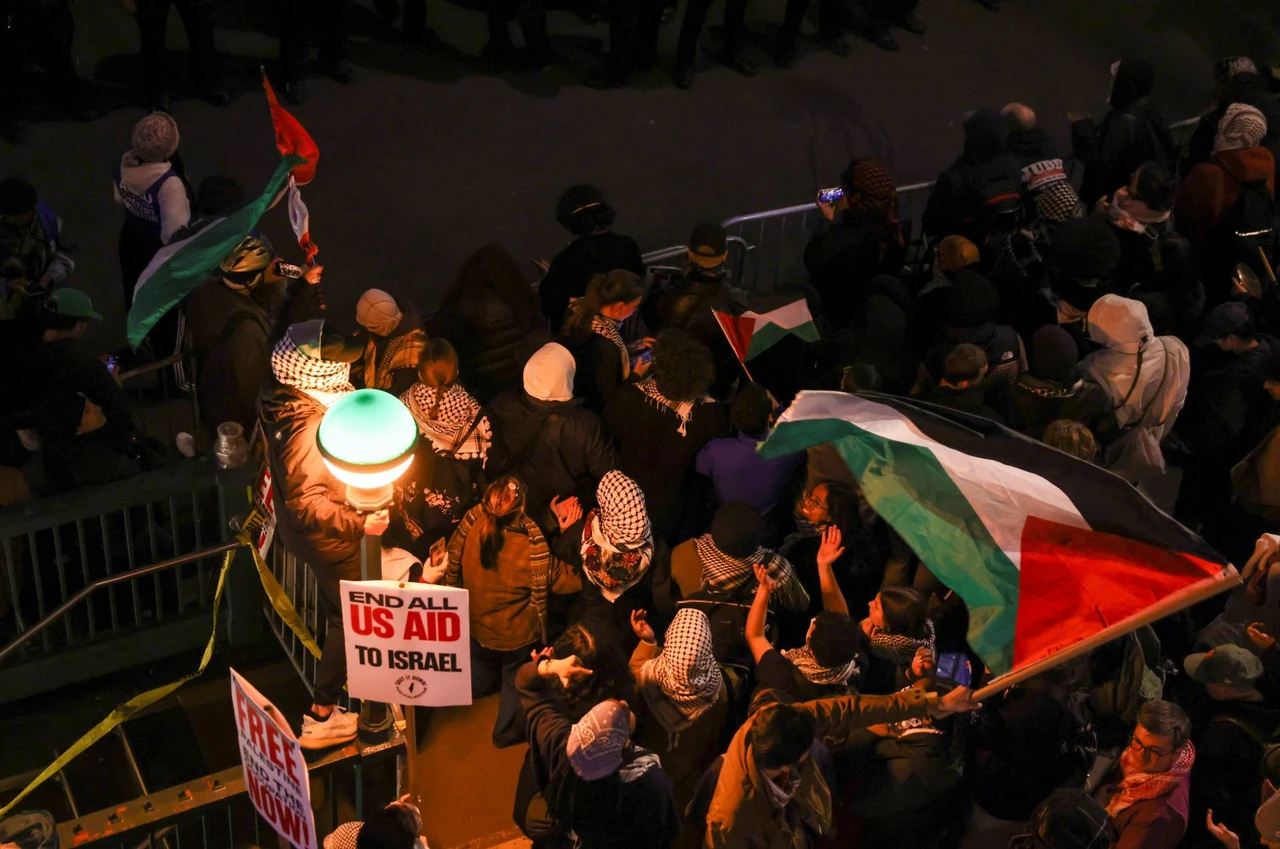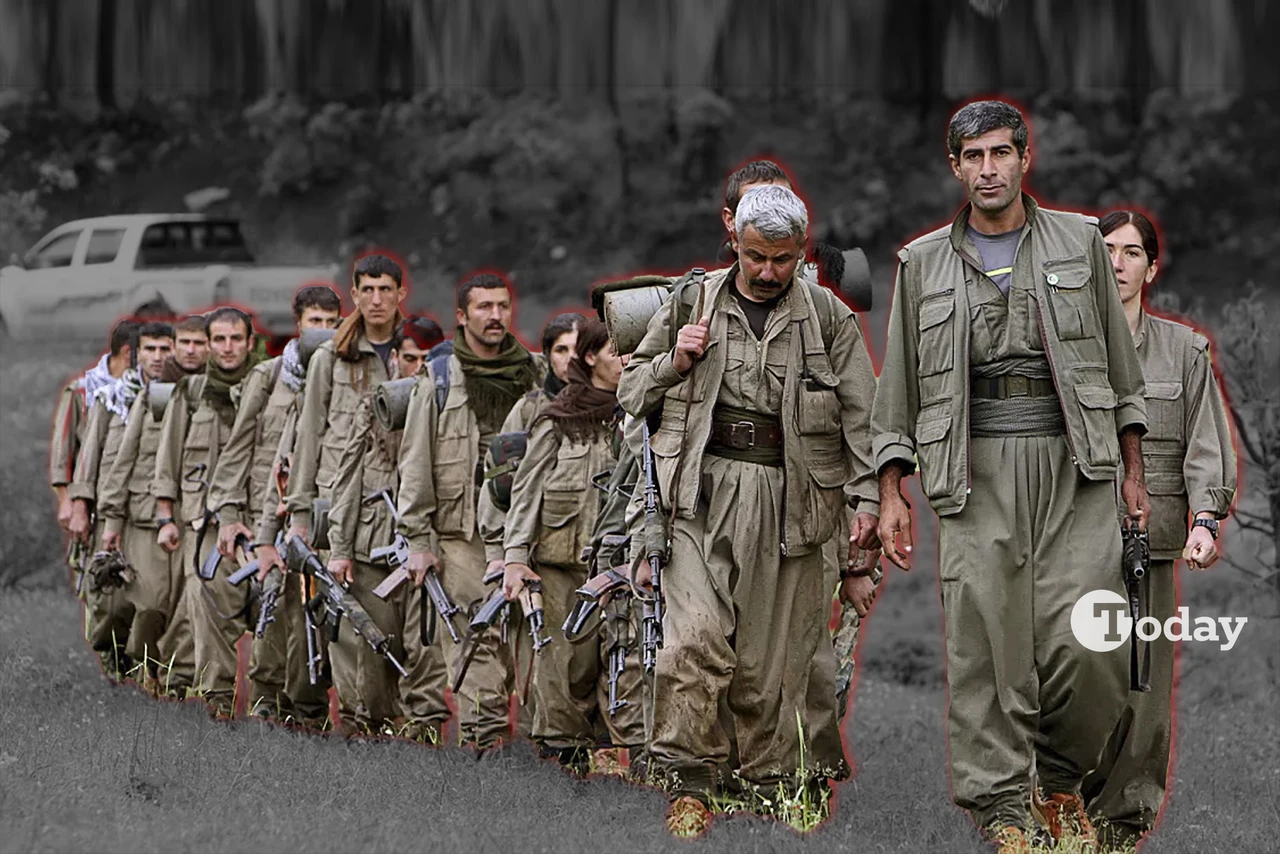US faces criticism for double standards on free speech amid pro-Palestine protests
 Demonstrators face off with NYPD officials during pro-Palestine protests, in New York City, U.S., April 24, 2024. (Reuters Photo)
Demonstrators face off with NYPD officials during pro-Palestine protests, in New York City, U.S., April 24, 2024. (Reuters Photo)
The US, which has provided support to Israel in its war on Gaza, has come under criticism for applying “double standards” to values such as freedom of speech.
The pressure at local and national levels to suppress pro-Palestine student demonstrations, which began in April at Columbia University in New York and spread nationwide, has triggered debate over the freedom of speech guaranteed by the US Constitution.
In response to student protests, sessions were held in Congress accusing universities of “anti-Semitism,” leading to the resignation of presidents from some of the nation’s most prestigious universities.
Thousands of students across the country who oppose the war in Gaza were also arrested, with hundreds investigated and some expelled from school.
“There seems to be an exception to people’s civil rights and to their ability to freely speak” on Palestine, Afaf Nasher, executive director of the New York chapter of the Council on American-Islamic Relations (CAIR).
“If you want to say the exact same thing but in support of the Israeli regime and you just switch out the words ‘Palestine’ and ‘Israel,’ then you are safe and there is no issue.
“However, if you flip it and you start speaking on behalf of Muslims and Palestinians, then all of a sudden there is discrimination and repression. On top of that, you are accused of being anti-Semitic,” said Nasher.
“That, then, obviously has repercussions in regards to your employment and student settings and so on.”
Nasher said the discrimination and repression against free speech regarding Palestine are “state-sanctioned.”
“The United States is supposed to be a beacon for civil rights and a beacon for protest activities. As a matter of fact, that was how the United States was created.”
She noted, however, that with Palestine and Gaza, the state and cities have “sanctioned police enforcement which brutally oppressed these protests.”
Nasher said that Muslim immigrants to the US generally focus on basic needs.
“The truth of the situation is that while Muslims have been here since the beginning of this country, we have not empowered ourselves politically enough to sway the systemic discrimination and repression.”
-Students still protest ‘through other means’
Tonika Henry, a student at Columbia University in New York, highlighted the bias in the application of freedom of expression in the US when it comes to supporters of Palestine.
Henry said she still sees students protesting “through other means” such as staging sit-ins at libraries and continuing to wear keffiyehs and raising awareness by talking to each other.
Israel has continued its brutal offensive on Gaza following an attack by the Palestinian group Hamas on Oct. 7 last year, despite a UN Security Council resolution demanding an immediate cease-fire.
More than 41,800 people have since been killed, mostly women and children, and over 96,800 injured, according to local health authorities.
The Israeli onslaught has displaced almost the entire population of the territory amid an ongoing blockade that has led to severe shortages of food, clean water and medicine.
Israel faces a genocide case at the International Court of Justice for its actions in Gaza.



